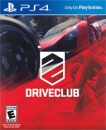Original D&D was vastly different game than what it is today.
It was basically a game of survival horror - you enter the dungeon, where most things want you dead, with limited resources, and you're trying to get the treasure, using your wits and with as little combat as possible. Cause that dungeon is usually very dark, death is around every corner, life is very cheap, and you don't get any XP for killing anything. Only XP you get is gold you bring back to town - literally, 1GP is 1XP.
Other thing that was different is the way it was played - OD&D was played more like MMO, in clubs, you play in some world made by DM and there are many parties playing in the same world (either helping each other, or not). There is no predefined story, you play the world, stories come from interacting with the world and world interacting with characters. Actions trigger reactions. Choices and Consequences. Game is open ended, with PCs eventually retiring (if they live that long) and becoming (in)famous NPCs in that world, that future PCs might (or might not) interact with. "There must be a story" D&D era came much later with "Hickman manifesto" and Castle Ravenloft, which many consider turning point for D&D (for good or bad - I'm in latter camp).
In OD&D, role playing does not mean what it means today - D&D was created by wargamers, from wargaming rules (Chainmail), so you play a role in your squad (AKA party). That's the "Role" part. Later interpretations came...later.
Abilities are fixed once you make your character (Ability Score Increase came only with 3rd edition of D&D and onward), your character evolves through items and level based class improvements, and, beside Thief class, there are no skills. Focus is mostly on player skills, instead of character skills.
Later in 70s, another game came out that helped define RPGs - Chaosium's RuneQuest. In RuneQuest there are no classes and levels, and whole game is based on skills that your character has (a subset of so many that exist in the game). Unlike D&D, where combat is based on your ability to overcome enemies AC (Armor Class) and score a hit, in RuneQuest combat is opposed skill roll between two combatants and armor has a role of damage reduction. Progress is made by increasing your skills and focus is more on your character skills, instead of player skills. Game is open world, as well as open ended.
I'd say both have influenced VG RPGs quite a bit, though mechanically I'd say RQ has one up over D&D in VG RPGs in the long run. D&D is of course still most popular TTRPG, but RuneQuest mechanics spawned Chaosium's Call of Cthulhu, which is most popular non-D&D derived TTRPG.
As for VG RPGs, unfortunately, there aren't many VG RPGs that pass the "RPG test" of creating you character, having that character grow via players decisions and having that characters choices have consequences in gameplay world, while having freedom to do whatever you want. That is, however, somewhat understandable, given that VG RPGs can never reach level of decisions and interactions that TTRPG table can have with Game Master running the world, thus always lacking key RPG component, in addition to being constrained with budgets it takes to make such games. But eventually, with advances in AI, we might get equivalent of GM in VG RPGs and proper TTRPG alike experiences.
Last edited by HoloDust - on 17 February 2024





































































